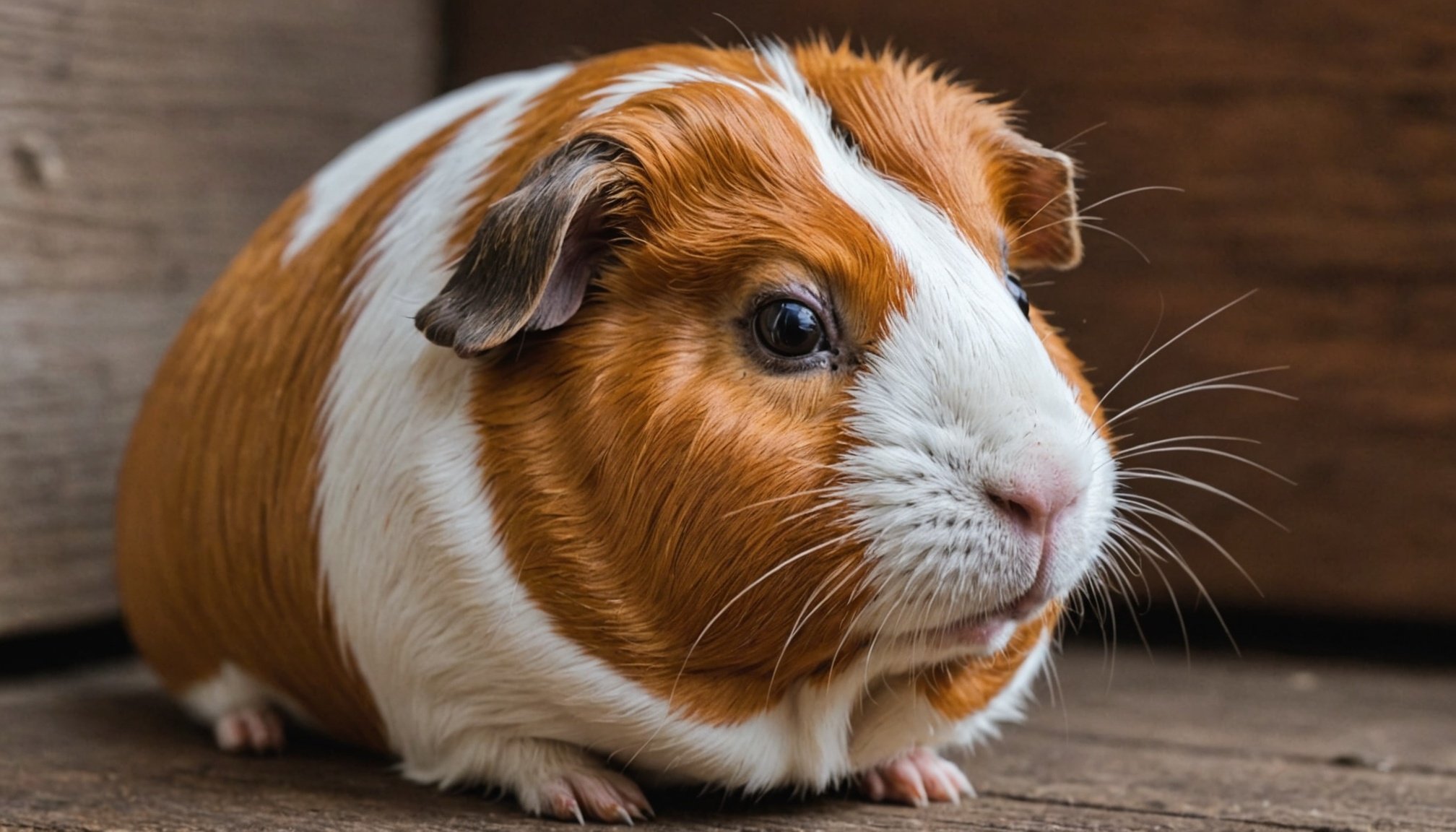Guinea pigs are beloved pets known for their gentle nature and delightful squeaks. As devoted caretakers, it is crucial to understand the signs that indicate your guinea pig may be feeling unwell. Unlike dogs or cats, these small animals often suffer in silence, making it vital to observe changes in behavior, diet, and physical condition. This article explores key health indicators that signal trip to the vet, and how you can support a healthy environment for your furry companions.
Recognizing Behavioral Changes
The first indicator of a health issue in guinea pigs can often be detected through their behavior. These creatures are creatures of habit, and any sudden deviation from their usual routine could be a sign of distress.
Also to read : Spotting signs of cognitive decline in your senior dalmatian: an in-depth guide for dog owners
Observational Awareness
Maintaining keen observational awareness is essential. If your guinea pig appears lethargic or uninterested in activities they once enjoyed, it might be a clue that something is amiss. Watch for withdrawal from social interaction, as guinea pigs are inherently social animals.
Vocalization Patterns
Changes in vocalization patterns might provide further insight. An increase in squeaking or a decrease in their usual chatter can signal discomfort. Vocalization can sometimes be a plea for help, indicating pain or another underlying issue.
Also read : Unlocking innovative solutions for managing chronic kidney disease in aging cats
Eating and Drinking Habits
Any alteration in eating or drinking habits should not be ignored. A loss of appetite or refusal to drink water can rapidly lead to nutritional deficiencies, making early detection and intervention crucial. A balanced diet is vital for maintaining their overall health.
Recognizing these behavioral cues early can assist in addressing potential problems before they escalate, ensuring the well-being of your guinea pig.
Physical Indicators of Health Issues
Physical changes in your guinea pig can be direct signs of illness. Understanding these indicators can assist in early diagnosis and treatment.
Weight Fluctuations
Regularly monitoring your guinea pig’s weight is essential. Sudden loss of weight is often a red flag, possibly indicating malnutrition or an underlying infection. Conversely, unexplained weight gain can also be problematic, sometimes pointing to hormonal problems.
Coat and Skin Condition
The condition of your guinea pig’s skin and fur can reveal a lot about their health. A healthy guinea pig should have a smooth, shiny coat. If you notice patches of hair loss, dandruff, or inflamed skin, it could indicate a skin condition or parasite.
Eye and Nose Discharge
Clear, bright eyes are typical of a healthy guinea pig. If you notice discharge from the eyes or nose, it may indicate a respiratory infection or allergy. Persistent discharge should prompt immediate consultation with a vet.
Monitoring these physical attributes will provide vital clues to your guinea pig’s overall health status and aid in maintaining their well-being.
Dietary Needs and Nutritional Health
Diet plays a pivotal role in your guinea pig’s overall health. Providing a balanced diet rich in essential vitamins can prevent numerous health issues.
Essential Nutrients
Guinea pigs cannot synthesize Vitamin C, making it a crucial component of their diet. Lack of this nutrient often leads to scurvy, a disease that can cause joint stiffness and skin problems. Incorporating fresh fruits and vegetables high in Vitamin C, such as bell peppers and leafy greens, can support their health.
Fiber Intake
Fiber is another critical aspect of their nutritional needs. A diet high in hay can prevent gastrointestinal problems and support dental health by naturally grinding down their ever-growing teeth.
Fluid Intake
Ensure constant access to fresh water to prevent dehydration, which can exacerbate other health issues. Monitor their water intake, as reduced consumption can indicate health concerns.
Maintaining a healthy diet not only supports their physical well-being but also enhances their quality of life, keeping them lively and content.
When to Consult a Vet
Understanding when to seek professional help is crucial for your guinea pig’s health. While some signs can be managed at home, others require the expertise of a vet.
Persistent Symptoms
If you notice persistent symptoms such as consistent weight loss, unhealed wounds, or ongoing skin issues, it is advisable to consult a vet. These symptoms can sometimes mask more serious health conditions.
Environmental Concerns
Environmental factors can also influence your guinea pig’s health. Ensure their habitat is clean and free of hazards that could lead to injury or stress.
Preventative Care
Regular check-ups are essential. Routine vet visits can help catch potential problems early. Use these opportunities to discuss any concerns or unusual behaviors with your veterinarian, ensuring your guinea pig lives a long, healthy life.
Timely intervention can make all the difference, reinforcing your commitment to your pet’s well-being.
As caretakers, your vigilance is the first line of defense in ensuring the health and happiness of your guinea pigs. By recognizing the subtle signs of illness, you can provide the necessary help and treatment that your pet requires. Prevention through a proper diet and regular vet visits, coupled with your attentive care, will nurture not only their physical health but also their emotional well-being. Your guinea pigs rely on you for their health; stay observant, stay informed, and continue to provide a loving environment where they can thrive.









